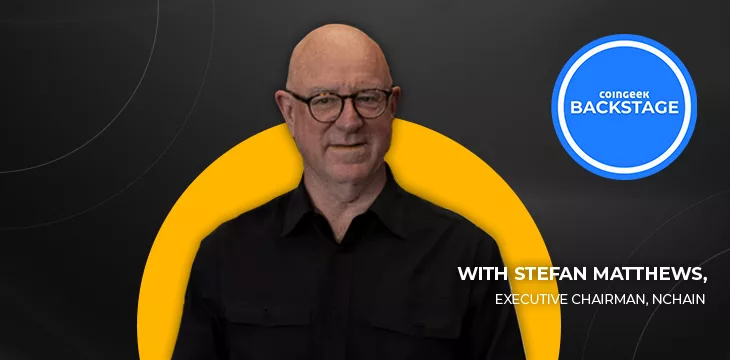|
Getting your Trinity Audio player ready...
|
nChain is delivering on its promise to assist the Philippines in its global blockchain hub bid, with Executive Chairman Stefan Matthews explaining to CoinGeek Backstage the firm’s latest efforts to support the initiative.
Months after delegates from the provincial government of Bataan flew to Zug, Switzerland, to learn the basics of blockchain technology from experts, nChain set up the Blockchain Immersion Program in the Philippines, which targets to fuel the blockchain education drive in the government sector.
Speaking to CoinGeek Backstage‘s Claire Celdran, Matthews said the program may sound new, but it isn’t. He noted that it is a consolidation of up to eight existing initiatives that have been in the works for months now.
The initiative primarily focuses on fueling education around blockchain technology in the Philippines, beginning with the national government and its agencies.
“To sum up, we’re right in the middle now of delivering training programs to DOST (Department of Science and Technology), central bank, DICT (Department of Information and Communications Technology), and a couple of others that we’ve been in discussions around providing tutorials, training programs for their staff,” he said.
“All of them are around transferring knowledge, training, upskilling, creating awareness and knowledge of blockchain technology, predominantly within government departments or government-affiliated entities,” Matthews added.
In previous CoinGeek Backstage interviews, Director of ICT Industry Development Bureau of DICT Emmy Lou Delfin and Department of Trade and Industry Director III Jo-Dann Darong stressed the importance of blockchain education in boosting the tech’s adoption in the country, noting that state-backed agencies are still in the process of familiarizing the tech.
nChain’s programs go beyond education, with Matthews saying the team has laid out several planned initiatives to help the Philippines’ digital transformation, including sandbox solutions and the ongoing collaboration with Bataan and the Bangko Sentral ng Pilipinas (BSP).
“It’s not just about education,” the nChain co-founder said as he recalled the lined-up initiatives they tackled during his recent trip to Slovenia. “The education things are important—they’re important for departments and working groups to understand so that they can plan and get their head around how to deploy blockchain solutions.”
Talking about solutions, President Ferdinand “Bongbong” Marcos Jr. earlier enumerated agriculture, supply chain management, weather, and disaster management as those he wished to be addressed by blockchain technology, said Matthews, who had an opportunity to talk with the head of state before the grand launch of the Block Dojo Philippines on August 8.
For Matthews, these could be done with blockchain integrated with other emerging technologies, such as the Internet of Things (IoT), a merger that would effectively help the Philippines tackle issues like flooding and climate change.
“I hope that through the incubator, I hope that Philippine innovation delivers a couple of those solutions that the president has on his high priority list to see,” he said, optimistic that the launch of the 12-week incubator program will not only revitalize the country’s startup sector but would bring massive transformation to industries needing change.
However, selecting the right blockchain is just as important as choosing the right partners for this initiative. For Matthews, the BSV blockchain is the perfect tool for building solutions, especially those that involve massive data.
“BSV delivers…the ability to take high-frequency data points from IoT devices, write them to blockchain, and have them viewable and accessible to data scientists to be able to report on that data,” said Matthews, adding that another benefit that BSV brings is its cheap transaction fee.
Meanwhile, in a bid to better monitor nChain’s projects in the Philippines, particularly in Bataan, which will serve as a test-bed for blockchain solutions, Matthews said the firm will be opening an office in the province. The space for the new office was offered by Bataan Governor Joet Garcia.
Matthews added that nChain is working to establish its wholly owned subsidiary in the Philippines.
“That will enable us to do the types of deals and contracts that we want to here in the Philippines, particularly with [the] government,” he noted.
Concluding his talk with CoinGeek Backstage, Matthews took the time to thank Calvin Ayre for putting his trust in nChain and for being an active supporter of the BSV blockchain community.
In August, Ayre Group invested $570 million in nChain to support the mission to accelerate the development and commercial adoption of the latter’s intellectual property portfolio.
“He has incredible plans and foresight around what he wants to do around application development in the blockchain space,” Matthews said of Ayre’s move to take a majority stake in nChain.
With nChain getting support from the Ayre Group, Matthews claimed that more innovation would take place and the speed of the developments would be swift.
Watch: The Philippines is ready for blockchain tech, nChain Chairman Stefan Matthews says

 02-22-2026
02-22-2026 




